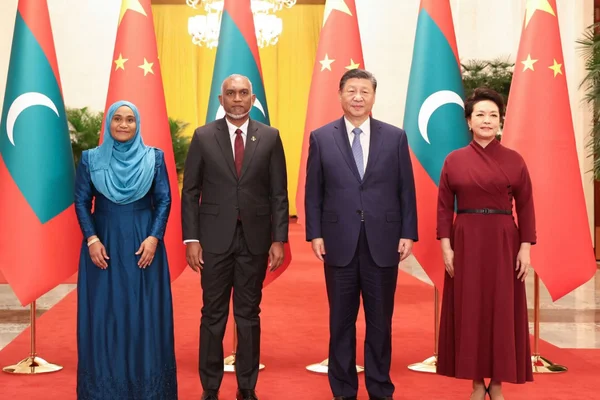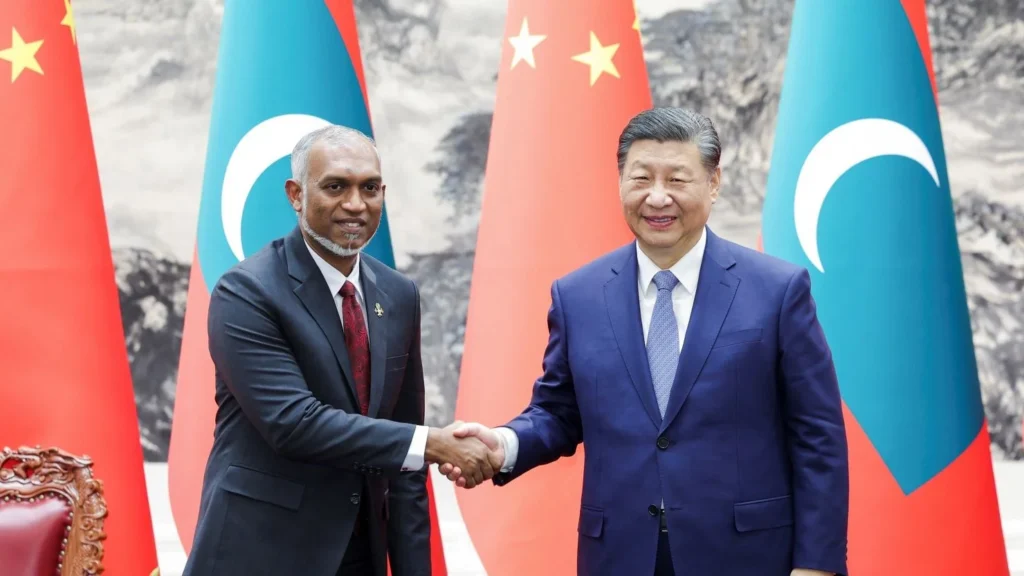Maldives recently signed an agreement with China to receive free ‘non-lethal’ military equipment and training.
Background and Key Reasons of the Military Pact:
- Maldivessigned an agreement of military assistance with China signaling a Pro-China shift.
- The Maldivian Defense Ministry stated that the deal was ‘gratis’ (given for free) and it would foster stronger Bilateral ties with China.
- It would provide free “non-lethal” military equipment and training to strengthen the Maldives’ independence and autonomy.
- It would reassert the lost national sovereignty, based on the India Out Campaign.
- Maldives asked for the complete withdrawal of Indian military personnel, changing the India-Maldives relations.
- There are 77 Indian soldiers and 12 medical personnel from the Indian armed forces in Maldives.
- India has also given Maldives two helicopters and a Dornier aircraft for marine surveillance, search and rescue operations and medical evacuations.
- The new deal with China marks a significant shift in Maldives’ foreign policy from a pro-India predecessor.
- China expanded its footprint in Maldives, most visibly through large-scale infrastructure projects such as the $200 million China-Maldives Friendship Bridge.
- The two countries signed 20 agreements including cooperation on infrastructure, trade, economy, green development, grants, and other development projects.
- That includes about $127 million in aid to develop roads in the capital Male and build 30,000 social housing units.
- Maldives aims to fortify its military capabilities and defense force through round-the-clock surveillance capabilities over its 900,000 square kilometer Exclusive Economic Zone (EEZ).
- China is committed to working with the Maldives to build a comprehensive strategic cooperative partnership.
- Diplomatic relations between China and the Maldives were established in 1972, and booth nations established an embassy since more than a decade.
Implications of the Pact:
- China’s growing military and economic influence in the region, could counter the security gap left by India’s departure.
- This could involve increased Chinese investment in the Maldives, a major tourist destination, and potentially closer military ties.
- China could expand its regional significance and alter India’s traditional dominance in the Indian Ocean.
- But Maldives has long found itself in the middle of a geopolitical tussle with both India and China vying for influence.
- Chinese presence in Maldives could affect Indian security, given the island chain’s proximity to India’s western coast.
| UPSC IAS Preparation Resources | |
| Current Affairs Analysis | Topperspedia |
| GS Shots | Simply Explained |
| Daily Flash Cards | Daily Quiz |



